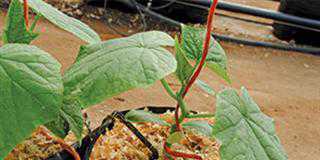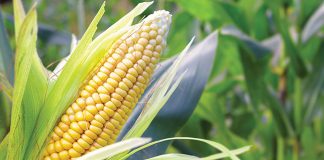The farming community in Philippi has withstood generations of problems, but new developments and crime, among other things, could jeopardise its existence. Situated on the Cape Flats between Mandalay and Nyanga, Philippi is less than 20 minutes from the Mother City.
In fact, it’s a suburb of Cape Town and part of the Cape Metropolitan Area. Philippi has a total of 53 farmers, farming about 1 800ha of arable land – 18 commercially, while the other 35 are newly emerging farmers recently settled in the area. Philippi’s farmers supply the city with 80% of its fruit and vegetables – and have been doing so for more than 100 years. But urban development and high crime rates pose a serious threat to the sustainability of farming in the area.
Farmers unite
"Our forefathers were very poor and suffered a lot as they tried to grow vegetables in this harsh environment. They soon realised that they needed to stand together if they wanted to become successful and this is why they started the agricultural association," explains Cape Flats Agricultural Association (CFAA) chairperson Leon Rix.
The agricultural society was founded on 12 September 1885, largely thanks to the efforts of Fritz Horstmann, one of the leaders in the Philippi German community at the time.According to Leon, the CFAA must be one of the oldest agricultural societies in the country. "We have records showing that members of the association worked together in 1890 to import a Friesian bull from Holland to improve their herds. They also imported better seed potatoes to improve their potato crops," he says.
Arnold Kohrs of the CFAA, which celebrates its 125th anniversary this year, explains, "Our ancestors came from Germany with the first immigrants arriving at the Cape in the late 1850s. Here among the sand dunes of the Cape Flats, they created a new homeland for generations to come." A few days before the establishment of the society, Horstmann wrote in the local German newspaper, Das Capland, that the only way to develop agriculture would be to organise it.
He felt the industry would only then really come into its own, and this would also enable them to help the local community. In other words, developing and supporting small-scale and emerging farmers has always been a priority for commercial farmers in the area.
The British brought the immigrants to the Cape. "The colonial government recruited small-scale farmers and day labourers from northern Germany who were willing to emigrate to the southernmost part of Africa, bringing nothing more than their hands and the Lutheran faith," says Leon.
They were given the job of converting the part of the Cape Flats known at the time as the Wynberg and Claremont Flats into a vegetable garden. Those first farmers achieved an almost impossible feat in taming land ravaged by strong south-easterly winds in summer and transformed into marshland by winter rain.
The legacy continues
Leon is a fourth-generation descendant of the German immigrant farmers. He and his son Adriaan grow vegetables on about 45ha. Most farmers in the area grow vegetables, but there are also livestock farmers, a dairy, a flower farm and two seedling farms supplying seedlings to farmers in and around Philippi. Most of the vegetables produced here are sent to the Epping Market in Cape Town.Today the farmers still support each other, just like their ancestors. Wadea Jappie of Chamomile Farming won the small farmer category for agricultural crops in the 2010 Western Cape Female Farmer of the Year competition.
"Without the help of my neighbour John Terblanche, I wouldn’t have achieved this much, this fast. For me his support and knowledge of farming is invaluable," said Wadea on receiving the prize.Arnold notes, "Our ancestors suffered many setbacks and hardships, which developed in them an unsurpassed work ethic that was passed on to their children and their descendants."This work ethic and determination is evident today, as the Philippi farmers confront a new set of modern challenges.
Problems facing Philippi farmers
"The ever-expanding informal settlements bordering the farmlands have brought with them a terrifying crime wave and police action is urgently needed," says Leon.A few decades ago, the Philippi farmers harvested seasonal vegetables once a year. Thanks to irrigation and other agricultural technologies, most vegetables are now produced and harvested year-round. Leon would like to see more sustainable development in the Philippi area through increased government support.
"We would like to join hands with the local government to develop markets, because these days we produce a surplus during the high season." The farmers are fortunate in being close to their market. Sandy soils with good natural drainage keep salinity levels in check and there’s enough irrigation water available. "We also have many hardworking and trustworthy farmworkers," adds Leon.
But, as noted, they’re also facing some serious threats. Most commercial producers in the area farm on between 50ha and 100ha. To remain economically viable, they have to expand their farms. But due to urban encroachment, land is scarce. "Expansion is probably excluded because the rest of the Cape Flats has been earmarked for housing . However, some farmers rent additional plots from landowners who have given up farming," says Leon.
Then there’s the crime – another consequence of rapid urban development. "Although this problem isn’t limited to Philippi, vegetable farmers suffer a lot of damage from theft and it’s impossible to recover these losses," says Leon. Millions of rands in cash, produce and equipment have been stolen in armed robberies that have cost the lives of several farmers and injured many others. "We know that a small group of criminals is causing all the trouble in this area.
If the police would just give us their full support we can solve this problem together," says Leon. "Our ancestors worked very hard to cultivate these farms, and we inherited the land, as well as the blood, sweat and tears they put in it." "I don’t want to have to leave here because of crime. This is where I make my living and where I want my children and grandchildren to farm."
Contact Leon Rix, chairperson of the Cape Flats Agricultural Association, on 021 371 4222.













